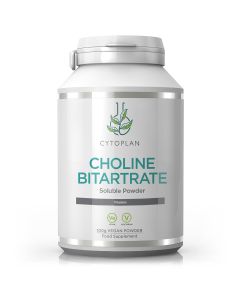Should I invest in a water filter?
Living in the UK, we at Cytoplan are grateful to be able to drink water straight from the tap, which, for many areas of the world, is a luxury. We know that our water is tested to ensure a certain standard, and because it is readily available from the tap, this may mean that many people might not think too much about the standard and quality of the water they are drinking, cooking, and bathing in. However, some people prefer to filter their water, whether that be for taste or concerns about the levels of contaminants that remain in tap water.
So, should we filter our water? Buy bottled water? What about the plastic!
Tap water is sourced from rivers, lakes, and reservoirs, which are then cleaned, aerated, and disinfected to remove pathogens and other nasties. 70% of the body is made up of water, and we NEED it to both survive and thrive! Although tested, tap water may still contain many contaminants such as heavy metals, pesticides, and even pharmaceutical drugs, which can have negative effects on our health.
What can be found in tap water?
Heavy metals
Heavy metals such as mercury, cadmium, arsenic, aluminum, and lead can come from pollution, agricultural runoff, and even lead pipes in your house, especially if you live in an older building. Heavy metals, such as mercury, have been found to be linked to oxidative stress and cell damage and may play a role in various health conditions.
Fluoride
Fluoride is commonly added to drinking water and is quite a controversial topic among health professionals. It was said to be added to tap water with the purpose of reducing tooth decay; however, too much of this has been found to have a negative impact on health, and many may argue that fluoride toothpaste and dental programs could be utilised instead of mass fluoridation of our water supply. Research has linked high fluoride exposure to its negative impact on the neurodevelopment of children, both prenatally and during infancy.
Pesticides and herbicides
Pesticides and herbicides come from household drains, irrigation, and agricultural wash off, which wastewater plants are not fully able to remove. Pesticides and herbicides are designed to inhibit weeds and pests; however, these can also be found in the water supply. This is an issue as high levels of exposure to these chemicals have been found to cause acute to chronic health symptoms.
Pharmaceutical drugs and medications
Pharmaceutical drugs and medications can also end up in the water supply, including antibiotics, birth control, and antidepressants. Chlorination can remove some, but not all, medications, and even a small amount of these pharmaceutical drugs could affect someone's health.
PFAS
Polyfluoroalkyl substances are known as ‘forever chemicals’ that are widespread in the water supply. Due to their chemical stability, they are very persistent and can stick around in the environment and the human body for years. They are man-made chemicals, often water, oil, and heat-resistant, used for industrial trade and are found within products such as carpets, cosmetics, and non-stick cookware. A well-known one you might find in your cupboard right now is Teflon non-stick pans, so one easy swap here is to check your pans and swap to a healthier alternative.
VOCs
Volatile organic compounds are used in industrial processes and can also be found in paints, cleaning products, pesticides, and industrial runoff. VOCs can leak into soil and groundwater, and as pesticides and herbicides contain VOCs, they can also come from agricultural runoff.
Chlorine
Chlorine is best known as being added to swimming pools, but did you know it is also used as a disinfectant to kill bacteria, viruses, and pathogens in tap water? While this is closely monitored, when chlorine reacts with organic matter in water, it can form byproducts (called disinfection byproducts or DBPs) that, at high levels over a long period of time, can be harmful to health. Some people also find that chlorine greatly alters the taste of tap water and is often a reason to invest in a filtration system. The undesirable effects of chlorine include mucus membrane irritation, which can affect the respiratory tract and skin.
So, shall I just buy bottled water?
This issue with plastic water bottles is that they are often made from PET (Polyethylene terephthalate), which comes with its health concerns. PET can leach chemicals such as phthalates into the water, which is a known hormone disruptor. Not only this, it contains microplastics, which goes without saying, isn’t great for our body! Not only this, but with the added expense and excess waste from buying plastic bottles, this is not a great solution.
Plastic bottles take over 300 years (!) to break down and are thought to take over three times the amount of water to produce than they contain. These used bottles then eventually wind up in the ocean, polluting our seas and harming fish and wildlife.
So, is a water filter the solution?
To avoid all this, a great option would be to invest in a water filter! There are many types of filters on the market, including filter jugs, countertop systems, and under-sink systems, and the quality and what they filter vary greatly from company to company.
Many filter jugs allow water to pass through a carbon filter, which, simply put, acts like a type of sponge to remove contaminants. This filter will need to be frequently changed depending on the use, but this is a great option for quick, ready-to-drink water. Free-standing or gravity water filters might be a better option for larger consumption, as these hold a greater amount of water. You can also get under-the-sink filter systems for the whole house, which is the most expensive option, but also the most effective and convenient. Companies will use certain methods which include, but are not limited to, activated carbon filters, reverse osmosis, UV light, ceramic filters, Ion exchange, and distillation.
What is filtered will vary vastly between companies, so it’s a good idea to do your research to find something that fits you best!











